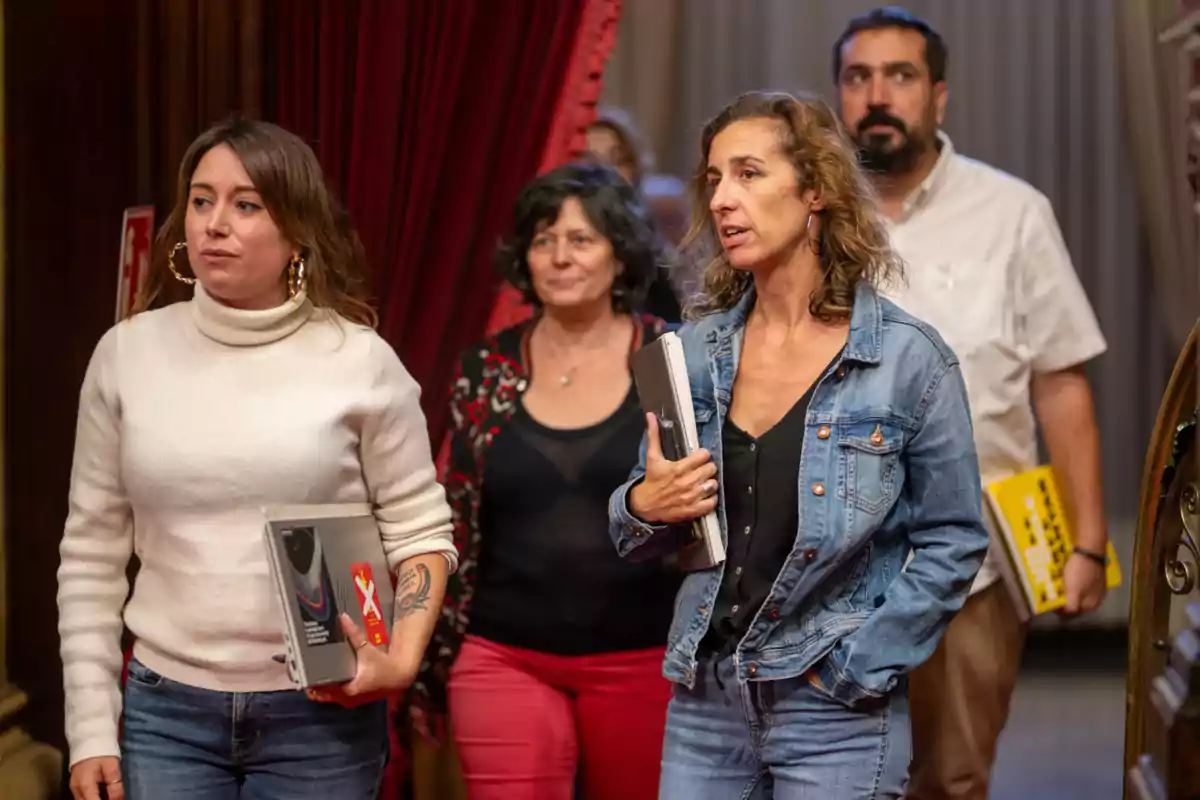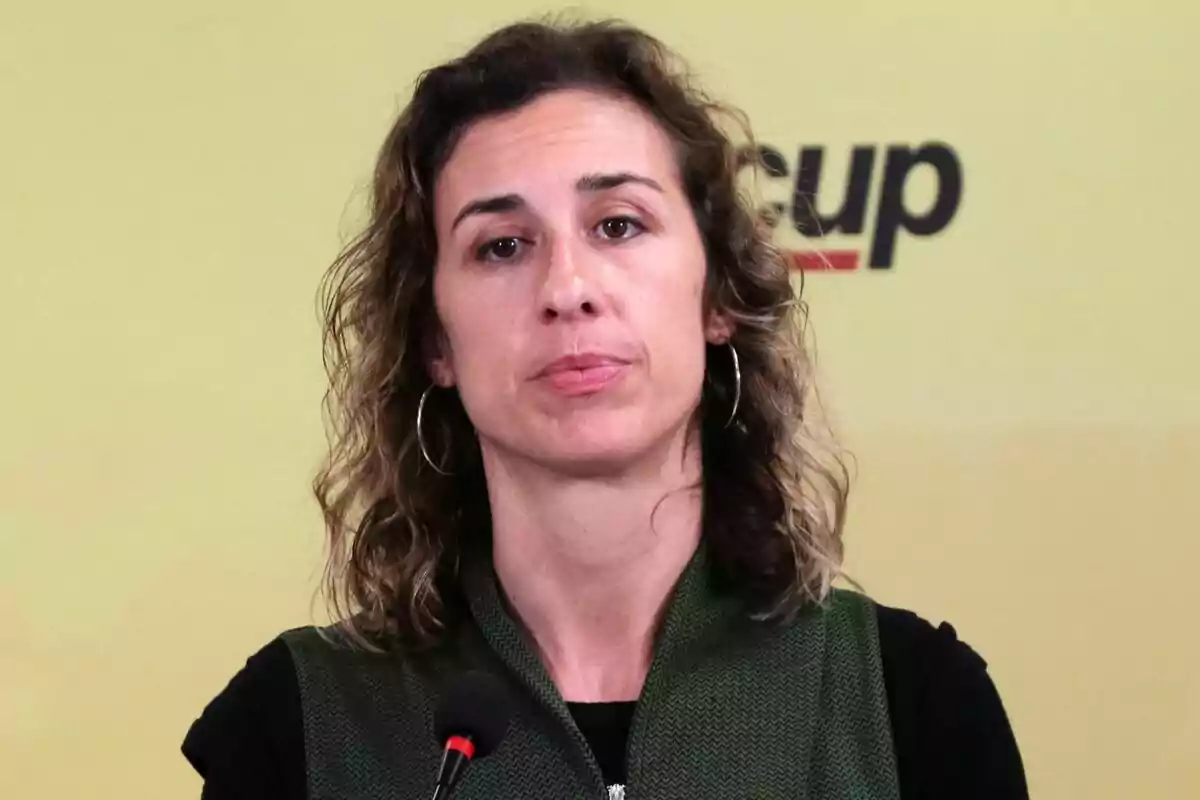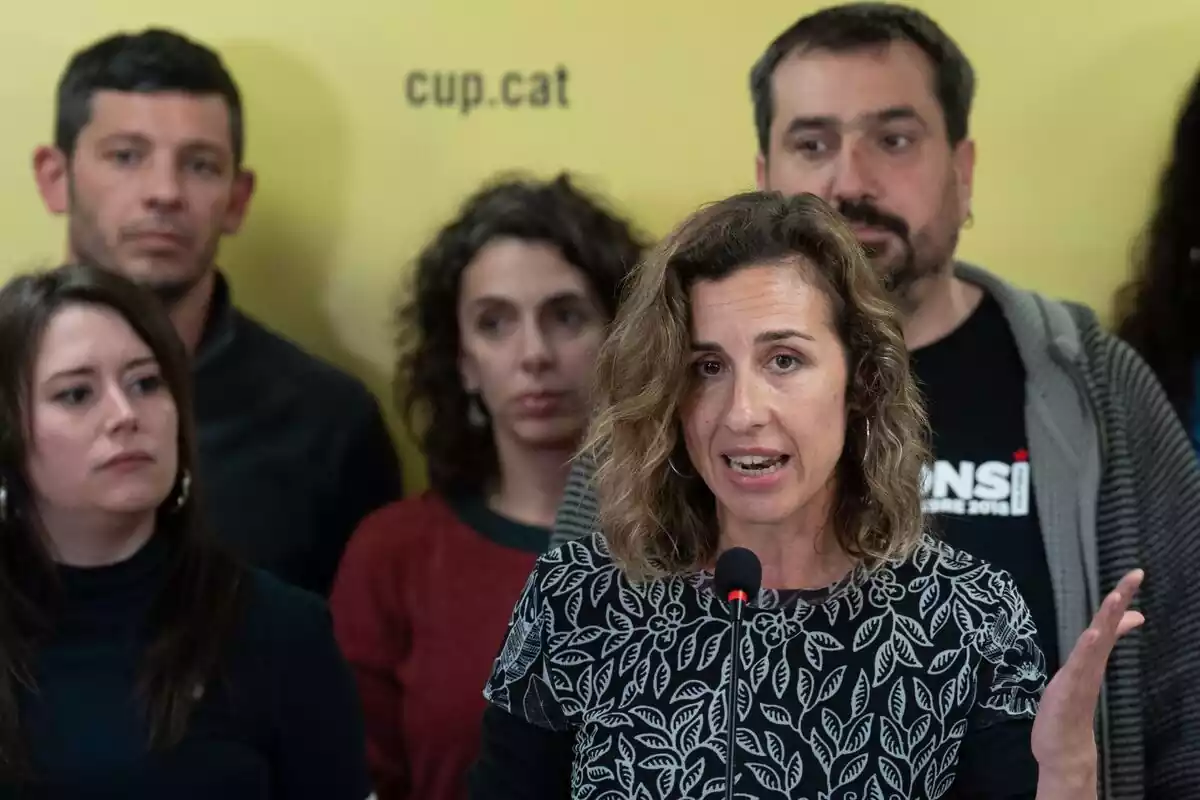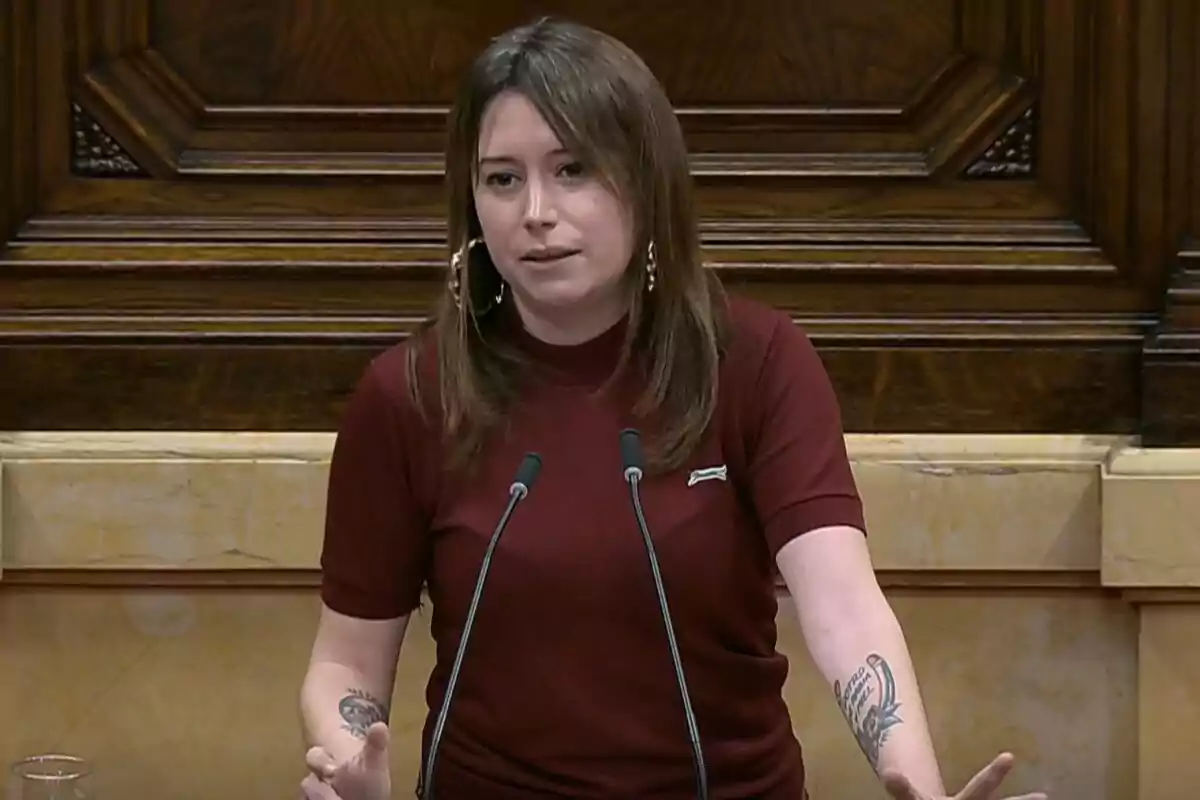
The crisis in CUP is deeper than they want us to believe.
There are at least three different sectors within the cupaire formation. However, the problems for the so-called anti-capitalists go beyond an internal war
The internal war within CUP has erupted. On Tuesday, Laia Estrada resigned as a member of Parliament due to "political disagreements" with the party leadership, as she herself acknowledged on her social media. She will do so, however, in September, which will allow her to still receive her salary as a member this August.
This is news that has allowed us to see just how deep the crisis within the CUP formation goes. This crisis goes beyond the already known internal ideological battles between historically opposed factions.

According to several media outlets, Estrada (who was the lead candidate for CUP in the Parliament elections a year ago) felt uncomfortable with the new strategy adopted by CUP to bet on "pragmatism." In the so-called "Procés de Garbí," that is, the process of refounding and renewing the party, the membership agreed on this new approach. This new approach became evident with the agreement with PSC for the regulation of seasonal rentals.
It should be remembered that just a few months earlier, Laia Estrada herself labeled Salvador Illa's party as "the most Spanish nationalist and right-wing PSC in history." In fact, the negotiations between CUP and the socialists were led by Laure Vega, Estrada's rival in CUP's primaries to decide the candidate for the Catalan elections a year ago.
The CUP-PSC agreement made Estrada very uncomfortable, as she has always opposed any rapprochement with the socialists. Not only for ideological reasons, but also because the opposition to PSC that she led in Tarragona City Council when she was a councilor was very fierce, including corruption complaints. Laia Estrada's animosity toward PSC goes back a long way, and this rapprochement made her uncomfortable. Even more so as she was the leader of CUP in Parliament.
However, in recent hours, information has circulated that the total break between Estrada and Vega occurred this week when CUP members found out that Vega was participating in meetings with other left-wing factions to explore the possibility of creating a joint antifascist list for the upcoming elections. CUP has categorically denied this. On the other hand, they haven't denied that in this week's meeting Estrada requested Vega's expulsion from the party. Why did she request her expulsion? Was it because of negotiations (and subsequent agreement) with PSC endorsed by the membership and that took place three months ago? Something happened, but it doesn't seem like the rapprochement with the socialists months ago is what caused everything to explode this week.

In any case, what the party leadership did do in this meeting was to align themselves with and defend Vega. So Estrada chose to step aside and leave all her positions in CUP.
The real problem of CUP
The crisis in CUP, however, is not simply the result of a battle between Laia Estrada and Laure Vega. Not even a battle between the two historically opposed factions (Endavant and Poble Lliure). The crisis in CUP goes much further.
To begin with, there are at least three different factions. On one hand, the one defended by Laia Estrada, which is the historical position of the Endavant faction. This faction has always been more sectarian, considers itself very pure, and views any rapprochement with other political formations with suspicion. They don't support agreements with PSC, nor rapprochement with Podemos, nor being what CUP has been for years: Junts's favored child. This is the faction where almost everyone is a "reformist" and only they are the pure and authentic ones. This is the faction, to give the reader an idea, that didn't look favorably on participating in the mobilizations of the Assemblea Nacional Catalana (ANC) at the beginning of the procés because it was an artifact created by ERC and the convergent space.

Then comes the Laure Vega faction, which is also part of Endavant (at least until recently, since there are unconfirmed rumors that she has been expelled). In any case, Vega represents the faction that "draws closer and closer to the Spanish left and Spanish nationalism," as publicly defined by La Forja, a youth collective linked to CUP. If any faction of CUP bets on coalitions with Podemos and similar parties, it is precisely the faction led by Laure Vega.
Finally, we have the Girona faction of CUP, historically linked to MDT and now to Poble Lliure. They would never make agreements with Podemos, but have no qualms about sharing spaces with Junts, for example. In fact, in the city of Girona, they already govern together. This is the faction considered "overly patriotic" that prioritizes alliances with Catalanist parties over Spanish left-wing parties.
Recently, this CUP faction has made several videos criticizing, for example, the "Catalonia of 10 million" inhabitants, an idea promoted by parties like ERC and PSC. The position of the CUP members from Girona is very far from the official CUP discourse and, as Vilaweb explained, has led part of the party (more linked to Endavant) to even label this stance as "racist" and "typical of the right."
The economic problem of CUP
Thus, after almost a year and a half of debates in the refounding process, CUP is more divided than ever. This is what usually happens when you stop having quotas of power. That is, when fewer and fewer people can make a living from the party's structures.
While things are going well and you have a lot of people placed in institutions and within the organization, disagreements are easier to bear. However, when public salaries start to become scarce and you can't have a broad internal structure, frictions become increasingly large and unsustainable.
Moreover, beyond the fact that the party is in free fall (loss of councilors in the last municipal elections, losing representation in Congress, and losing 5 out of 9 members in Parliament), CUP has the problem of the ideological shift that society is undergoing. While more and more people want to address uncomfortable debates for the left (insecurity, immigration, etc.), CUP members remain trapped in excessive idealism and dogmatism that only allows them to insult and dehumanize those who think differently. The problem is when these people who think differently are already a very large majority of the population, and all you do is move closer to extra-parliamentarism.
More posts: